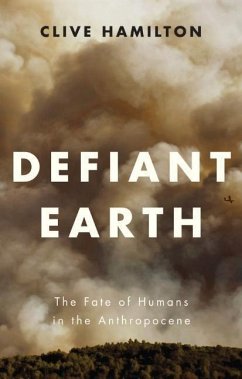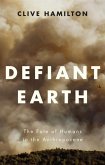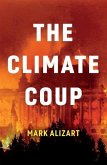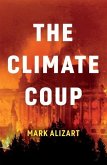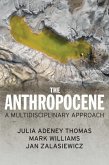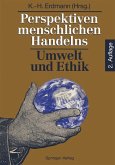Humans have become so powerful that we have disrupted the functioning of the Earth System as a whole, bringing on a new geological epoch - the Anthropocene - one in which the serene and clement conditions that allowed civilisation to flourish are disappearing and we quail before 'the wakened giant'.
The emergence of a conscious creature capable of using technology to bring about a rupture in the Earth's geochronology is an event of monumental significance, on a par with the arrival of civilisation itself.
What does it mean to have arrived at this point, where human history and Earth history collide? Some interpret the Anthropocene as no more than a development of what they already know, obscuring and deflating its profound significance. But the Anthropocene demands that we rethink everything. The modern belief in the free, reflexive being making its own future by taking control of its environment - even to the point of geoengineering - is now impossible because wehave rendered the Earth more unpredictable and less controllable, a disobedient planet.
At the same time, all attempts by progressives to cut humans down to size by attacking anthropocentrism come up against the insurmountable fact that human beings now possess enough power to change the Earth's course. It's too late to turn back the geological clock, and there is no going back to premodern ways of thinking.
We must face the fact that humans are at the centre of the world, even if we must give the idea that we can control the planet. These truths call for a new kind of anthropocentrism, a philosophy by which we might use our power responsibly and find a way to live on a defiant Earth.
Hinweis: Dieser Artikel kann nur an eine deutsche Lieferadresse ausgeliefert werden.
The emergence of a conscious creature capable of using technology to bring about a rupture in the Earth's geochronology is an event of monumental significance, on a par with the arrival of civilisation itself.
What does it mean to have arrived at this point, where human history and Earth history collide? Some interpret the Anthropocene as no more than a development of what they already know, obscuring and deflating its profound significance. But the Anthropocene demands that we rethink everything. The modern belief in the free, reflexive being making its own future by taking control of its environment - even to the point of geoengineering - is now impossible because wehave rendered the Earth more unpredictable and less controllable, a disobedient planet.
At the same time, all attempts by progressives to cut humans down to size by attacking anthropocentrism come up against the insurmountable fact that human beings now possess enough power to change the Earth's course. It's too late to turn back the geological clock, and there is no going back to premodern ways of thinking.
We must face the fact that humans are at the centre of the world, even if we must give the idea that we can control the planet. These truths call for a new kind of anthropocentrism, a philosophy by which we might use our power responsibly and find a way to live on a defiant Earth.
Hinweis: Dieser Artikel kann nur an eine deutsche Lieferadresse ausgeliefert werden.
"Defiant Earth is a major contribution to a topic that is of vital if not pre-eminent importance today. The book is highly original in its synthesis of the scientific, philosophical and religious issues raised by the coming of the 'Anthropocene.' Hamilton mines each of these traditions for ways to make sense of the new and frightening epoch that is upon us." - Adrian Wilding, University of Jena, Germany
"For those entertaining the idea that we should just rocket away from an overheated planet to some new world, or perhaps fill the atmosphere with sulphur to block out the sun, here's a remarkably powerful accounting of our actual responsibility--past, present, and future." - Bill McKibben, author of The End of Nature
"Earth system scientists' idea of the Anthropocene has given rise to two seemingly rival camps of thought in the humanities: there are those who want to fold the idea back into new histories of global capital, and those who have used the debate to movetowards a new philosophical anthropology. Clive Hamilton has been an original, important, and distinctive voice in this debate. Defiant Earth goes a long way towards bridging the distance between these rival camps while generating insights of its own into the meanings of being human in an age of planetary climate change. An essential reading for our times." - Dipesh Chakrabarty, University of Chicago
"Drawing his observations from the humanities as much as the sciences, Hamilton offers a robust view of the current state of play; not a warning - we're past that stage - but an attempt at understanding." - Geographical Magazine
"For those entertaining the idea that we should just rocket away from an overheated planet to some new world, or perhaps fill the atmosphere with sulphur to block out the sun, here's a remarkably powerful accounting of our actual responsibility--past, present, and future." - Bill McKibben, author of The End of Nature
"Earth system scientists' idea of the Anthropocene has given rise to two seemingly rival camps of thought in the humanities: there are those who want to fold the idea back into new histories of global capital, and those who have used the debate to movetowards a new philosophical anthropology. Clive Hamilton has been an original, important, and distinctive voice in this debate. Defiant Earth goes a long way towards bridging the distance between these rival camps while generating insights of its own into the meanings of being human in an age of planetary climate change. An essential reading for our times." - Dipesh Chakrabarty, University of Chicago
"Drawing his observations from the humanities as much as the sciences, Hamilton offers a robust view of the current state of play; not a warning - we're past that stage - but an attempt at understanding." - Geographical Magazine

